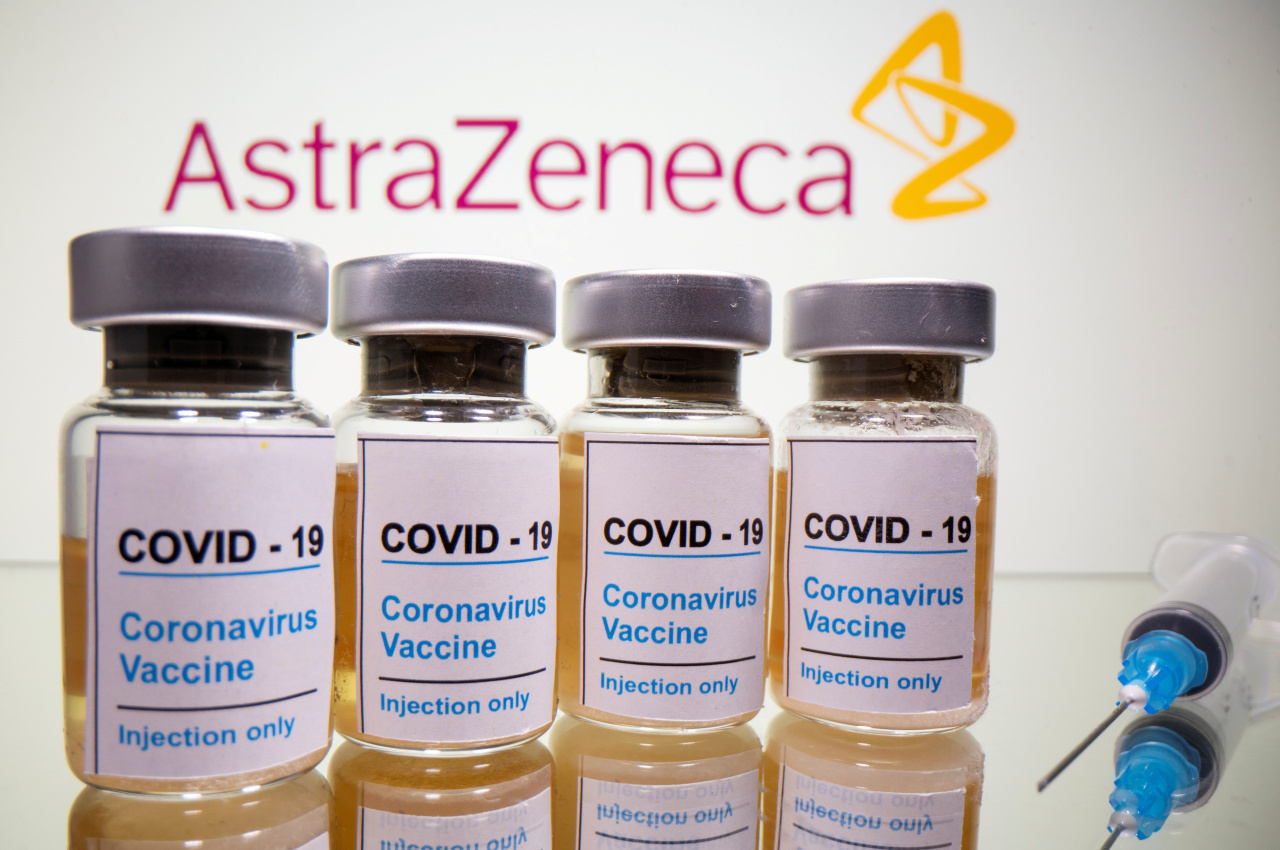Korean public health authorities said Monday that AstraZeneca vaccinations should go on in the country, echoing rulings from regulators elsewhere that the benefits outweigh the risks of side effects.
In a news briefing, the Korea Disease Control and Prevention Agency said that it continues to recommend the use of the AstraZeneca COVID-19 vaccine, especially considering the immediate threats of the pandemic.
Still, it admitted that the vaccine’s link to rare blood clotting in the brain, along with lower levels of platelets, cannot be excluded, largely reiterating the European Union regulator’s review released Friday.
Over the weekend, the KDCA said in response to The Korea Herald’s inquiry that one of recipients of the AstraZeneca vaccine here, a paramedic in his 20s, was suspected to have developed the blood clotting condition.
“Cerebral venous sinus thrombosis (cerebral blood clots) appears to be the most likely diagnosis in this case,” the KDCA senior official said.
The paramedic in his 20s was inoculated with his first AstraZeneca jab on March 10. He then complained of a persistent headache that worsened over the course of about the four days since being vaccinated. The paramedic does have known existing health conditions, and what caused the blood clot remains unknown.
He is one of two blood clot cases found among more than 615,000 people who received the first AstraZeneca vaccine in Korea so far. The other case involved a chronically ill patient in her early 60s who died eight days after getting the vaccine. Following investigations concluded her death was not caused by the jab.
Monday’s announcement comes in response to the late statement from EU agency that although the vaccine is safe and effective overall, and the causal link with blood clots not proven, further analysis was necessary.
In particular, the EMA noted that the number of cases of rare blood clotting identified among those who had the AstraZeneca vaccine was statistically higher than the number of such cases that was expected to occur normally. The majority of these cases were found in people under 55 years of age, especially women.
The KDCA said it would be updating its guidelines for vaccinators and emergency medical services to include a warning about blood clotting risks accordingly.
The symptoms of cerebral venous sinus thrombosis are general and non-specific, making it difficult to detect, according to brain surgeon Dr. Cho Sung-yun of the Korean Neuroendovascular Society.
Cho, who is one of the only 216 vascular neurosurgeons in the country that are trained and certified to treat the specific form of the rare blood clots in the brain, said the condition was not only difficult to treat but also hard to diagnose in the first place.
“Symptoms of blood clotting in the brain can be associated with a wide range of other conditions that make it hard for doctors to suspect in a patient,” he said.
“Based on the information available so far, it’s impossible to say the vaccine is or isn’t responsible for the rare occurrence,” he said. “It’s extremely unusual that a young person, moreso for men than women, without inherited predisposition or otherwise at increased risk, such as through the use of birth control pills, would develop blood clots in the cerebral veins.”
Some of the hallmark symptoms of cerebral blood clots, such as headaches, also overlapped with more common post-AstraZeneca jab reactions being reported, he said.
“People should be informed properly of the risks prior to vaccinations, and then be instructed to seek medical help in the event of any signs suggestive of clotting problems post-vaccination.”
The second phase of COVID-19 vaccinations in Korea starting April targets many professions dominated by young women, in whom clotting events are said to be more frequently reported. Early childhood educators, nurses working outside of COVID-19 wards and flight attendants are among the priority groups next in line for the vaccine.
All of them will be receiving the AstraZeneca vaccine, as Pfizer supplies are reserved for those aged 75 or above.
Epidemiologist Dr. Chun Byung-chul of the Korean Vaccine Society said doing the opposite -- giving the AstraZeneca vaccine to older groups, and Pfizer’s to younger groups -- “could be an option” but needed a careful review.
“We need to warn the prospective recipients of the potential risks, and inform them of the steps that they can take in case of a highly rare, but possible emergency.”
By Kim Arin (
arin@heraldcorp.com)








![[Today’s K-pop] Blackpink’s Jennie, Lisa invited to Coachella as solo acts](http://res.heraldm.com/phpwas/restmb_idxmake.php?idx=644&simg=/content/image/2024/11/21/20241121050099_0.jpg)